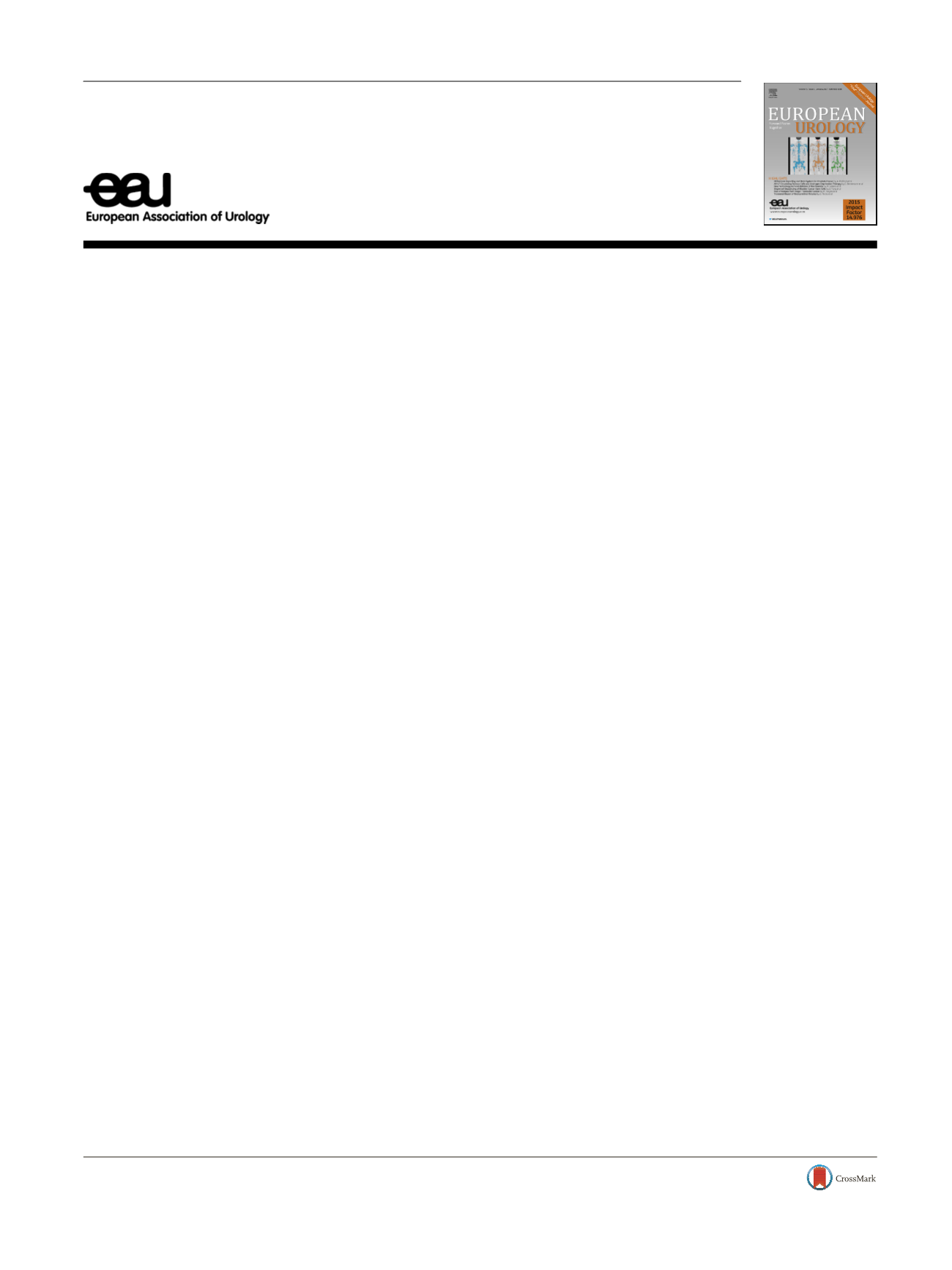

Letter to the Editor
Re: R. Jeffrey Karnes, Voleak Choeurng, Ashley E. Ross,
et al. Validation of a Genomic Risk Classifier to
Predict Prostate Cancer-specific Mortality in Men
with Adverse Pathologic Features. Eur Urol. In press.
https://doi.org/10.1016/j.eururo.2017.03.036Methodological Issue
We read with interest the report by Karnes and
colleagues
[1] .The authors assessed the predictive perfor-
mance of the Decipher genomic classifier (GC) for the risk of
prostate cancer–specific mortality (PCSM). Their results
demonstrated that the Decipher GC had an area under the
receiver operating characteristic (ROC) curve (AUC) of
0.73 for PCSM within 10 yr of radical prostatectomy.
Addition of the GC yielded AUC of 0.76 for a model with the
Cancer of the Prostate Risk Assessment Postsurgical Score
(CAPRA-S) and AUC of 0.79 for a model with individual
clinical variables
[1] .Although the results are very interesting, some methodo-
logical and statistical issues should be noted. The authors
mention that the prediction performance will be improved in
models that include the GC with individual clinical variables
and CAPRA-S. However, such a conclusion is a simple and
easy interpretation, because empirical comparisons of AUCs
provided no indication of superiority of prediction perfor-
mance. When several ROC curves are plotted for different
tests on the same data set, we can compare the statistical
difference between AUCs using efficient statistical methods,
accounting for correlation between AUCs derived from the
same data set
[2,3] .Hence, we suggest that the authors
should reanalyze their data to assess whether the difference
between reported AUCs is statistically significant.
Conflicts of interest:
The authors have nothing to disclose.
References
[1] Karnes RJ, Choeurng V, Ross AE, et al. Validation of a genomic risk
classifier to predict prostate cancer-specific mortality in men with
adverse pathologic features. Eur Urol. In press.
http://dx.doi.org/10. 1016/j.eururo.2017.03.036.[2]
DeLong ER, DeLong DM, Clarke-Pearson DL. Comparing the areas under two or more correlated receiver operating characteristic curves: a nonparametric approach. Biometrics 1988;44:837–45.[3]
Hanley JA, McNeil BJ. A method of comparing the areas under receiver operating characteristic curves derived from the same cases. Radiology 1983;148:839–43.
Erfan Ayubi
a,b
Saeid Safiri
c,
*
a
Department of Epidemiology, School of Public Health, Shahid Beheshti
University of Medical Sciences, Tehran, Iran
b
Department of Epidemiology & Biostatistics, School of Public Health, Tehran
University of Medical Sciences, Tehran, Iran
c
Managerial Epidemiology Research Center, Department of Public Health,
School of Nursing and Midwifery, Maragheh University of Medical Sciences,
Maragheh, Iran
*Corresponding author. Managerial Epidemiology Research Center,
Department of Public Health, School of Nursing and Midwifery,
Maragheh University of Medical Sciences, Maragheh, Iran.
Tel.: +98 41 37276365; fax: +98 41 37276365.
E-mail address:
saeidsafiri@gmail.com(S. Safiri).
May 17, 2017
E U R O P E A N U R O L O G Y 7 2 ( 2 0 1 7 ) e 1 5 7ava ilable at
www.sciencedirect.comjournal homepage:
www.eu ropeanurology.comDOI of original article:
http://dx.doi.org/10.1016/j.eururo.2017.03.036.
http://dx.doi.org/10.1016/j.eururo.2017.05.0310302-2838/
#
2017 European Association of Urology. Published by Elsevier B.V. All rights reserved.
















